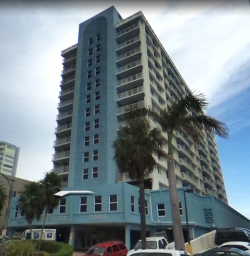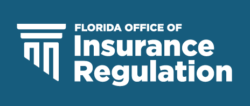Rising reinsurance costs a factor
Allstate’s Castle Key subsidiary is asking for a 53.5% rate increase after shedding 33,000 condo policies, another Florida insurance company goes into a policy runoff while another calls it quits altogether, plus how the high cost of reinsurance is impacting condo premiums. It’s all in this week’s Property Insurance News.
![]() Castle Key: Allstate’s Florida subsidiary, Castle Key Indemnity Company has submitted a use-and-file average rate increase of 53.5% on its remaining condominium policies in the state. It cited among other factors, rising reinsurance costs. The move follows its January filing with the Office of Insurance Regulation (OIR) that it was non-renewing 33,000 Florida condo policies. In June of 2022, Castle Key suspended writing all new condo business and with this recent filing confirmed it’s not writing any new business at all, including its homeowners and renters policies. At year-end 2022, it had about 287,000 policies in Florida, with direct written premium of $372.6 million. OIR routinely holds rate hearings on requests above 15%.
Castle Key: Allstate’s Florida subsidiary, Castle Key Indemnity Company has submitted a use-and-file average rate increase of 53.5% on its remaining condominium policies in the state. It cited among other factors, rising reinsurance costs. The move follows its January filing with the Office of Insurance Regulation (OIR) that it was non-renewing 33,000 Florida condo policies. In June of 2022, Castle Key suspended writing all new condo business and with this recent filing confirmed it’s not writing any new business at all, including its homeowners and renters policies. At year-end 2022, it had about 287,000 policies in Florida, with direct written premium of $372.6 million. OIR routinely holds rate hearings on requests above 15%.

Condo Premiums: Condominium master policy rates for buildings continue to rise, along with individual condo unit rates. KW Property Management & Consulting, which manages more than 90,000 Florida homes through condo associations and HOAs, says 2023 building rates have gone up an average of 33% with increases as large as 370% on some properties. In a recent survey of its associations, more than one-third went up 50% to 100%, and another 12% went up more than 100%. This is causing significant hurt on individual unit owners through resulting monthly association fee increases. The scarcity of companies writing condo insurance, due in part to the lack of available and affordable reinsurance and greater underwriting insecurity post-Surfside, is responsible for these huge increases.
I represent and consult with insurance companies who know that when they send out a premium that is double last year, how it’s hurting their policyholders. They don’t want to drive business to state-backed Citizens Property Insurance simply because it’s cheaper. That’s the dumbest idea in the world, given the more Citizens policies there are, the more risk exposure Florida taxpayers have should Citizens not have enough money to pay claims in a future major hurricane or series of hurricanes. Especially when we could reduce these rates through the “reinsurance bridge” we’ve been discussing in these pages. It’s up to the legislature and Governor to provide that bridge because insurance companies are struggling to purchase adequate reinsurance by June 1, the start of hurricane season. That’s what happened to UPC Insurance last month, forcing it to become the seventh Florida domestic insurance company to become insolvent in the past 14 months. Those consumers whose rates are going up need to share that fact with their legislators to prompt action in this legislative session.
 More Market Drop-Outs: Another Florida property insurance company is apparently going into an orderly runoff of its policies. OIR has issued a Consent Order for Public Administration Supervision of Capacity Insurance Company, a commercial lines carrier based in Sunrise. The company began sending nonrenewal notices in October 2022, then notified OIR in January 2023 it wouldn’t be able to maintain its surplus requirement and would likely file an impaired financial statement on March 1. But then the carrier told OIR it would be able to do an orderly solvent run-off and was to have submitted a plan by March 13.
More Market Drop-Outs: Another Florida property insurance company is apparently going into an orderly runoff of its policies. OIR has issued a Consent Order for Public Administration Supervision of Capacity Insurance Company, a commercial lines carrier based in Sunrise. The company began sending nonrenewal notices in October 2022, then notified OIR in January 2023 it wouldn’t be able to maintain its surplus requirement and would likely file an impaired financial statement on March 1. But then the carrier told OIR it would be able to do an orderly solvent run-off and was to have submitted a plan by March 13.
Other carriers have also called it quits. OIR has issued a Consent Order for the surrender of Kingsway Amigo Insurance Company’s Certificate of Authority. It has no policies or claims in Florida as of Aug 25, 2022. OIR also issued a Consent Order for Centre Insurance Company to reduce its surplus requirement from $15 million to $4 million since it no longer has nor is writing any new residential property insurance policies in Florida.
LMA Newsletter of 3-27-23

